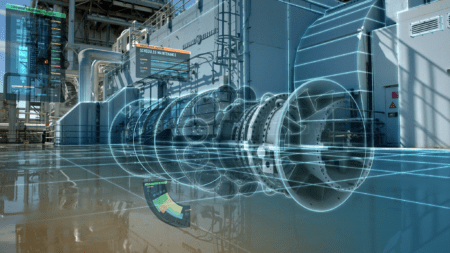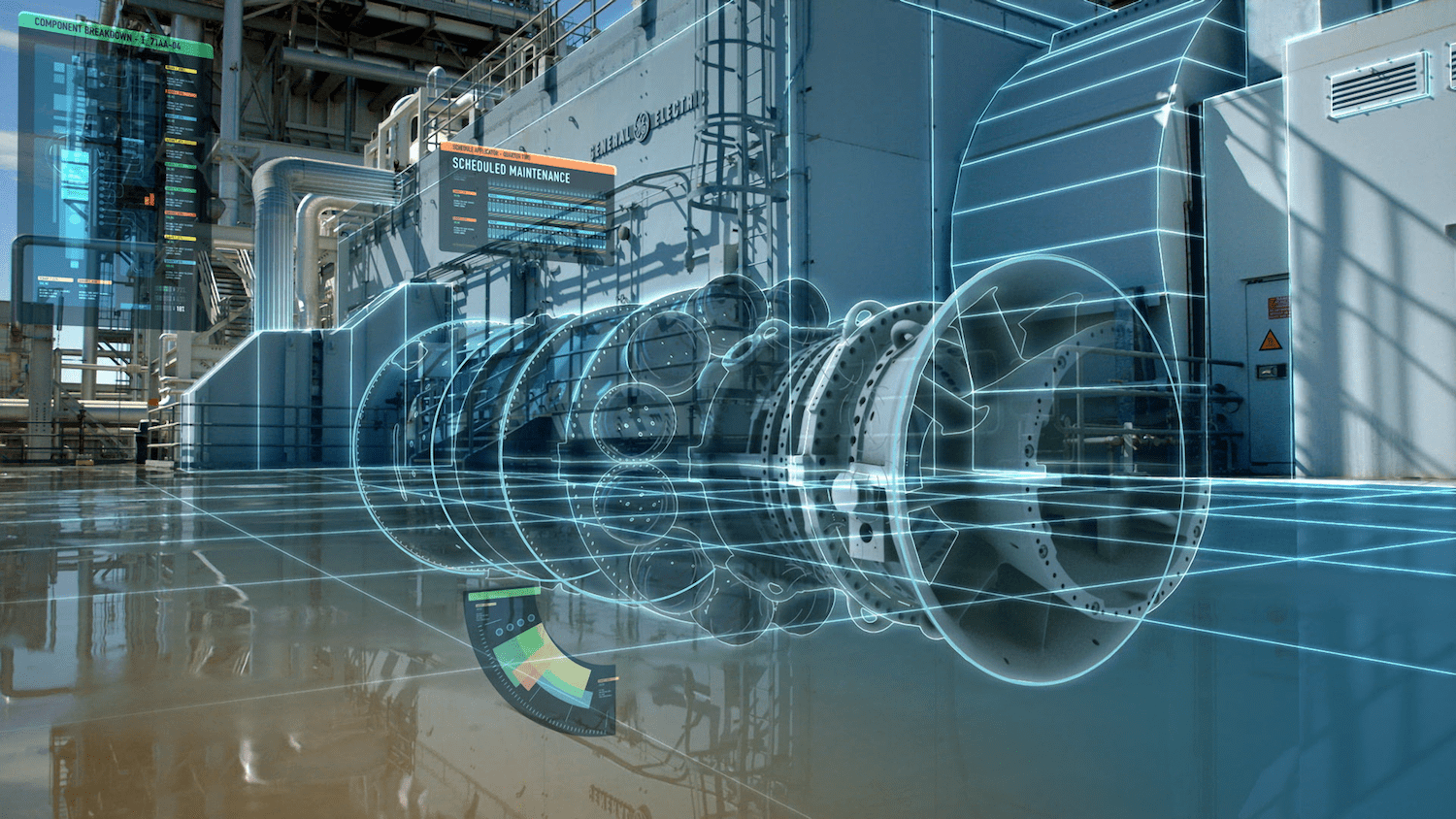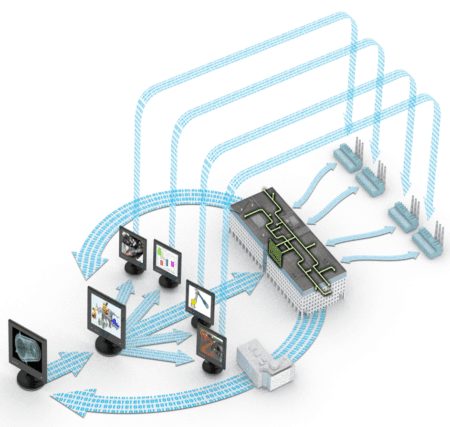This story originally appeared on GE Reports, a site that covers GE’s industrial transformation.
Like any factory manager in today’s competitive marketplace, Jeff Gordon knows how quickly even a small issue can have a big impact on efficiency. That’s why it’s essential for him to monitor and understand what’s going on at his facility. With hundreds of factors to process, he couldn’t clone himself. So GE decided to clone his machines.
Enter the digital twin.

Digital twins are virtual models of factories and other assets, like gas turbines, that provide GE’s businesses with data insights they can use to improve performance. Image: GE
Digital twins are virtual models of physical assets or manufacturing processes that continually learn and provide data insights. In Gordon’s case, a team of scientists and engineers at GE Global Research has created digital twins of supply chain and factory processes that have allowed him to significantly improve inventory management and factory throughput.
SEE ALSO: Schneider Electric Eyes Augmented Reality Trial Program
Using an app from GE Digital to communicate with his twin, Gordon is now able to see everything from inventory and factory capacity to product cycle times and on-time delivery at the plant in Minden, Nevada, which is part of Baker Hughes, a GE company. The twin and the app help him make the tens of thousands of decisions that are required every year across the vast supply chain and factory operations.
More than 800,000 digital twins of jet engines, locomotives, power generation equipment and more already are helping GE and customers to make their machines and processes more productive. The technology has been winning praise across the manufacturing industry. It was recently recognized with a Frost & Sullivan award for manufacturing leadership during the group’s 13th annual Manufacturing Leadership Summit.
“As any plant manager knows, the slightest disruptions in your supply chain or factory operations can alter everything from delivery and cycle times to inventory levels and factory capacity,” Gordon says. “The twin and the app suite are allowing us to address and even get ahead of these disruptions to keep us as productive and lean as we can be.”
Gordon says that at Minden, the technology has helped improve on-time delivery for an already high-performing business. His ultimate goal is near-perfect order fulfillment by optimizing and synchronizing the demand and supply of parts with production. He says he wants to double “the overall speed of how materials flow” through the factory.
Stephan Biller, chief manufacturing scientist at GE Global Research, says the Minden facility is an example of how the convergence of digital and physical technologies is creating “brilliant factories.”
“We’re gaining new digital insights into our manufacturing systems that are enabling us to optimize the performance and productivity of GE’s factories,” Biller says, adding that what GE learns about one business it can readily apply to another.
The knowledge sharing also works the other way, helping the twin and the app suite evolve. The app suite, for example, can collect data from multiple GE business and supply chain operations to improve the predictive models and insights sent back to the factory, says Joseph J. Salvo, executive director at GE Global Research, who led the digital twin development team. Salvo compares the system to consumer data models that help companies like Amazon build customer profiles and improve their ability to predict what any one of them might want.
“In tandem with traditional lean principles, these new digital-twin-powered factory and supply optimization technologies are creating a virtual multiverse of solutions in real time that allow managers to influence their real-world factory processes like never before,” Salvo says.
Read the original at GE Reports.



Share this: